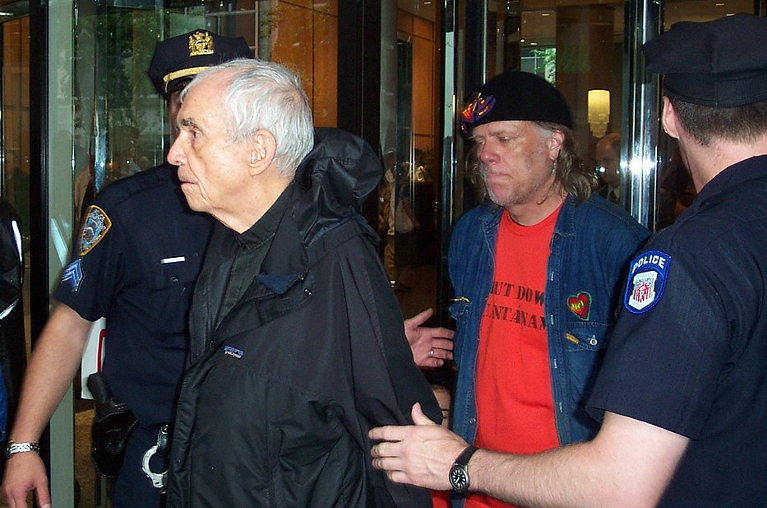 America is easy to find at 35,000 feet, folded into a window seat on a six hour flight across the country. Our vast and conflicted country is all spread out below in neat crosshatches of green and brown, broken up by puffy cloud formations and snowy mountain peaks. Beside me, was an eight-year old and his mother who screen-burned their way through the flight. Missing it all, they embodied the kind of America that makes my head hurt.
America is easy to find at 35,000 feet, folded into a window seat on a six hour flight across the country. Our vast and conflicted country is all spread out below in neat crosshatches of green and brown, broken up by puffy cloud formations and snowy mountain peaks. Beside me, was an eight-year old and his mother who screen-burned their way through the flight. Missing it all, they embodied the kind of America that makes my head hurt.
I picked up Kathleen Alcott’s new novel “America Was Hard to Find” after putting down The New York Times. I had stared at the cover photograph of little Valeria and her father Oscar drowned and face down in the Rio Grande River, until my eyes and heart were weary from crying. I looked as long as I could, another facet of America’s hard face, so easy to find. Valeria and Oscar’s arduous, brave journey from their home in El Salvadorwas cut short by the unpredictable waters and our hateful national politics.
Even before I opened it, I took issue with Alcott’s imposition of the past tense on Dan Berrigan’s persistent present-ness. I’m glad that didn’t stop me completely, because Alcott tells a very American story about the passivity of the wealthy and the frantic search for the self, for meaning — any meaning. She demonstrates how few real answers emerge from our messy, secular, individualistic culture; America is so hard to find.
The central relationship in the novel is between a woman named Fay Fern and her son, Wright. Fleeing a privileged upbringing, Fay and her sister Charlie strike out for the desert to run a bar for the flyboys at a Nevada air base. Erudite and impetuous, Fay falls for an older man, a taciturn pilot named Vincent Kahn. He is married. Their relationship is short, intense and ends when he leaves Nevada to train to be an astronaut. He leaves Fay pregnant. She bears a son and her sister names him Wright. Kahn later becomes the first man to land on the moon.
A single mother supported by her wealthy but isolated parents, Fay is attracted to social movements. She moves with her son to Ecuador, to work among the poor. She meets Randy, a Vietnam veteran so sickened by his experiences of war that he shoots off his finger to get discharged. He then commits himself to ending the war.
Randy comes to the fevered conclusion that they are not doing enough, “no more protests, not more slogans on paper. If our government continues to destroy, then we must destroy the government.” Fay, Randy and Wright return to the United States, two of them intent on doing just that, one too young to make any other choice.After the successful moon landing, the astronauts head off on an international goodwill tour. Fay, Randy and their friends protest the Quito parade with signs like “We Will Not Be Distracted By Your Spectacle” and throw dead fish and rotten tomatoes at the astronauts in their convertible. Wright, hoping they were in Quito for a birthday party, notices how clean and precise the astronauts are, “a paean to a kind of manhood he knew nothing about.” The boy, eight or so years old, wanted to “climb into their laps.”
Alcott tells of the Vietnam War, the gaping economic disparities, and the rigid racial barriers of 1950s and 1960s American life with vivid energy. The closed society of the nuclear community in the desert, the politics of the race to the moon, the scientific accomplishment’s agitprop momentum are all here too, with unfamiliar and exciting details.
The moon landing is rendered a test of wills between two of the astronauts. Nixon’s anodyne message of internationalism falls flat in the ears of Vincent Kahn, the first man to step on the moon. He puts a baby sock, bought before his wife’s miscarriage, and other totems beneath a rock at the edge of a moon crater and observes that “The flag, when they unfurled it, seemed foriegn to him, sad and irrelevant in the way of outdated technology. The pole they meant to plant wouldn’t, the surface being too fine and shallow, the surface obdurate and he held up the Stars and Stripes while Rusty made insistent, varied jabs. That it finally caught at all was vaguely disappointing, a concession to them he wasn’t sure they deserved.”
Did you know that Ralph Abernathy protested the Apollo 11 launch as a criminal waste of resources? I didn’t. Alcott evokes the real life tension between the race to the moon and the quest for racial justice and civil rights in her novel and it led me to the July 15, 1969 exchange between Southern Christian Leadership Council president Ralph Abernathy and NASA director Tom Paine. Abernathy tells Paine, “We may go on from this day to Mars and to Jupiter and even to the heavens beyond but as long as racism, poverty and hunger and war prevail on the Earth we as a civilized nation have failed.” America is hard to find, even when you can see it from space.
Fay, Randy and Wright join Shelter, a Weathermen-like group of violent provocateurs. Their involvement in bank bombings, robberies and other acts of violence mean constant motion and no schooling for young Wright. Fay becomes a leader, her upper-class poise a chameleon quality that gets her where others of the unkempt, ill-fed Shelter denizens cannot go. Their actions destroy property but not lives. They debate and rage and swap sexual partners, while 11 or 12-year-old Wright reads books, tries to feed himself and avoid the more damaged members of Shelter. But then they cross that line too, planning to plant a bomb at a ball for military officers returning from Vietnam and their wives.
In the midst of this, a version of Dan Berrigan enters, unnamed but described as “a priest imprisoned for burning draft cards, a man with a face so long and noble that his pacifist message seemed painted on it.” This man writes to the group, worried that they “had become what they wanted to eradicate.” He asks, “Shouldn’t a revolution differ vastly, in action and feeling, from the forces it hopes to dismantle.” They meet this genuine query, this invitation to dialogue, with derision. And then they died. The bomb they were building for the ball blew up in their safehouse instead and three people died. This happens in the novel and in real life. On March 6, 1970, on 11th Street in Manhattan, the Weathermen’s nail bomb exploded prematurely, killing three and inflicting serious injury on two more people.
Fay is on the run again, wanted by every authority and cut off from all surviving Shelter members. She drags Wright with her in a desperate cross-country journey. He is old enough to rebel, to resist, to hate her at times. As she plans one last action, she explains to Wright in a breathy, speechey way that he has long recognized as obdurate and inarguable: “America has to see what it has done to its future.” He responds: “who are you talking to? Who do you think is recording this right now? … We are two people in a very bad hotel room in Georgia and I’m not its future. I’m just your son and that I’d gladly give up.”
And he does. He has to. Because Fay’s next action changes everything. Wright then lives out the rest of his fractured childhood in the care of his grandparents — strange, shamed people in their own unmappable, unfindable America.
Thankfully, Alcott’s story does not end there and there are new chapters to Wright’s life as a young adult in San Francisco, free and independent. He waits tables, makes friends, builds a found hat. The mothers and fathers of all his friends and lovers are similarly loved and hated and pined for from afar.
They watch TV and Wright observes, “there was no one like them in the commercials for small cellophane candies, antidotes to migraines, juice so fresh it jumped from the glass and clothing so clean it shined. There was pride in this, that their lives were unmappable, irreducible, existing under the known American fabric. But also fear, like some nightmare in which the mirrors when you pass by them are empty.”
But this is the 1980s and as he writes long, late night drunken letters to the famous, hermitted Vincent Kahn, his unknown father who he uncannily resembles, his friends and lovers start dying and his roommate gets political. And the boy who watched his mother turn to flame and then ash in a political statement cannot march and chant. Wright thinks there is not “enough of him that he could add his voice to an angry cause and not give himself over to it, now become that sound.” His fear of loosening his conscience and losing himself is so massive that it breaks his relationship with his best friend. It is repaired. America is still lost, but some wholeness is found.
But back to the long-faced priest for a minute, because Dan Berrigan’s real letter to the real Weathermen is collected in the real book that he authored “America is Hard to Find.” And as I look for an America, the America, worthy of all those starry, soaring songs, Langston Hughes’ rejoinder, “America was never America to me” keeps coming back to me.
In “Letter to the Weathermen,” Dan calls out their whiteness and privilege, their choice of violence and contrasts it to how the Black Panthers and the Puerto Ricans and the Vietnamese are rejecting of victimhood and adopting a posture of self defense. He offers his brothers and sisters in the Weather Underground a simple rule of thumb, “the revolution will be no better and no more truthful and not more populist and no more attractive than those who brought it into being. Which is to say, we are not killers … we are something different. We are teachers of the people who have come on a new vision of things. We struggle to embody that vision — day after day, to make it a reality among those we live with so that people are literally disarmed by knowing us.” He sent this just a few days before he was apprehended on Block Island and arrested, ending his own time underground.
In a beautiful, poignant remembrance shortly after his death in May 2016, Weather Underground leader Bernardine Dohrn recalls this moment and writes that her group “responded with a much less eloquent ‘communiqué’ to ‘Brother Dan,’ just after he was arrested in 1970. ‘We watched you, Dan, on TV when they took you to jail, smiling and with hands raised, handcuffed, giving the sign of peace. You have refused the corruption of your generation.’” That might not be eloquent, but it is the truth for sure; America was not hard to find for Dan Berrigan.
And it’s not for Alcott either, who finds America. She puts it under a microscope and pulls us close to see all its refracted contradictions — the staggering beauty and the rapacious violence. Her characters, her Americas, are all lost and damaged and so alive you can hear them breath and seethe between her pages. So, we end where Alcott began, with a slightly fuller evocation of “America is Hard to Find.” As Dan wrote (and it is best read aloud):
“Dear friends, I choose to be a jail bird (one species is flourishing) in the kingdom of fowlers
Like strawberries
Like good bread
Swans herons great lakes
I shall shortly be hard to find
An exotic uneasy inmate of the nationally endowed inescapable zoo
Remember me I am
Free at large untameable
Not really
As hard to find as America.”
By Thomas Good – Thomas Good / Next Left Notes, CC BY-SA 4.0




